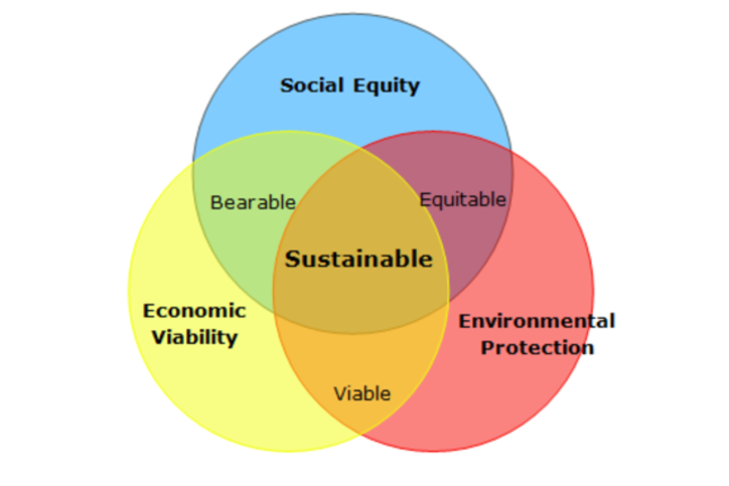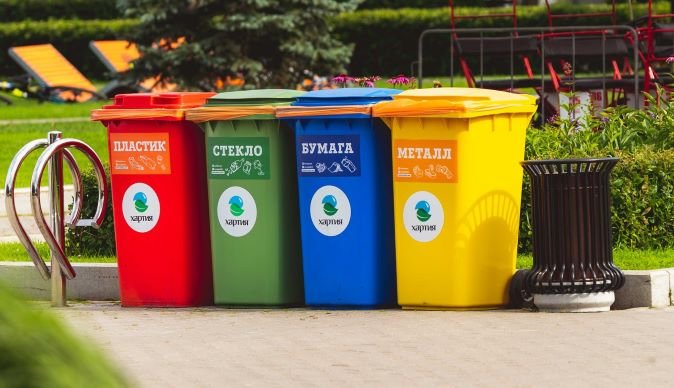1. Sustainability and Carbon Neutrality

To become more sustainable in business with the goal of reaching carbon neutrality is a long journey. This journey starts in your mind.
Our step-by-step approach is customized to your company needs and abilities, providing you with full control of the entire process:
• Assessment of current situation
• Review of existing concepts
• Strategy and Goal setting
• Concept design and implementation
• Roadmap with milestones and timeline
• Measure and report achievements
2. INVEA’s 30 Key points for a sustainable exhibition and convention venue

INVEA’s 30 Key points for a sustainable exhibition and convention venue
Sustainability is becoming an increasingly important issue in our society, and exhibition venues have a significant impact on the environment due to the large amount of energy, water, and materials required to host events. As such, it is essential to make exhibition venues more sustainable to reduce their environmental impact. In the article below your will find INVEA’s 30 key points to make an exhibition venue more sustainable whilst at the same time reducing the carbon footprint for venue owners, event organizers, exhibitors and attendees.
To rank these 30 key points in order of importance and impact on carbon footprint is difficult as each point is important and has a significant impact on reducing the carbon footprint of an exhibition venue. However, we attempt to list them in a somewhat logical order based on their potential impact.
- Use renewable energy sources such as solar or wind power to reduce reliance on fossil fuels. Venue management can invest in renewable energy sources by installing solar panels or wind turbines. Alternatively, they can purchase renewable energy credits to offset their energy usage. Event organizers can prioritize venues that use renewable energy sources, and exhibitors can use energy-efficient equipment.
- Install energy-efficient lighting systems and appliances to reduce energy consumption. Venue management can replace outdated lighting systems and appliances with energy-efficient ones. Event organizers can require exhibitors to use energy-efficient equipment and lighting.
- Encourage exhibitors to use LED lighting which is energy efficient and long-lasting.
- Use motion sensor lighting. Use motion sensor lighting to reduce energy usage when rooms are not in use.
- As a venue, use natural ventilation to reduce the need for air conditioning, thus lowering your energy needs and cost.
- As a venue use smart building technologies to optimize energy usage and reduce waste.
- Implement a waste management plan to reduce waste generated from exhibitions and events. Venue management can develop a waste management plan that includes recycling and composting facilities. Event organizers can require exhibitors to use recyclable and compostable materials, and attendees can be encouraged to recycle and compost.
- Use low-flow water fixtures and efficient toilets to reduce water usage. Venue management can install low-flow water fixtures and efficient toilets to reduce water usage.
- Offer water refill stations. Provide water refill stations to encourage the use of reusable water bottles by exhibitors and attendees.
- Encourage exhibitors to use sustainable materials and products. Event organizers can provide exhibitors with a list of sustainable materials and products that they can use for their displays and exhibits.
- Encourage exhibitors to reuse materials for their displays and exhibits.
- Minimize the use of printed materials and use digital alternatives, such as mobile apps and online platforms or content for download instead.
- Use renewable materials for construction and design, such as bamboo or recycled materials. Avoid carpeting in the alleys if possible or switch to sustainable material options.
- Provide recycling and composting facilities for attendees and exhibitors - Venue management can provide recycling and composting facilities throughout the venue. Event organizers can communicate the location of these facilities to attendees and exhibitors.
- Use sustainable and non-toxic cleaning products. Venue management can use environmentally friendly cleaning products. Event organizers can communicate the use of these products to exhibitors and attendees.
- Event organizers can encourage attendees to use public transportation or carpool to the event. Venue management can provide shuttle buses or designate parking areas for carpooling. Incentivize the use of public transportation and carpooling.
- Use digital signage and communications instead of printed materials. Venue Owners and Event organizers can use digital signage and communications to reduce the use of printed materials. Exhibitors can provide digital marketing materials rather than printed handouts.
- Use reusable, renewable or biodegradable materials. Venue F&B should apply reusable catering equipment such as plates and cutlery or use sustainable and biodegradable options. Event organizers can encourage exhibitors to use sustainable and biodegradable materials for packaging, displays and handouts.
- Use locally sourced and organic food and beverage options. Venue management can work with local vendors to provide locally sourced and organic food and beverage options. Event organizers can communicate the availability of these options to attendees and exhibitors.
- Implement a green procurement policy for all goods and services. Venue management can implement a green procurement policy that prioritizes environmentally friendly goods and services.
- Venue management can install rainwater harvesting systems for landscaping and other non-potable water needs such as toilets.
- Implement green roofs and walls to help with insulation, air quality, and biodiversity. Venue management can implement green roofs and walls to improve insulation, air quality, and biodiversity. Green roofs can be used to provide additional sustainably grown, organic food to be used in venue catering services.
- Venue management can provide a bike-share program for attendees and staff to encourage sustainable transportation.
- Venue management can use energy-efficient HVAC systems and insulation to reduce heating and cooling needs.
- Implement a sustainable transportation plan for all event-related transportation. Event organizers can implement a sustainable transportation plan that prioritizes sustainable modes of transportation.
- Offer incentives for exhibitors and attendees who make sustainable choices. Event organizers can offer incentives such as discounts or prizes to exhibitors and attendees who make sustainable choices. For example, exhibitors who use sustainable materials or practices could be given preferential booth locations or discounts on booth fees. Attendees who use public transportation or bring reusable water bottles could be entered into a prize drawing.
- Provide education and training on sustainable practices. Event organizers can provide education and training sessions for exhibitors and attendees on sustainable practices. This could include information on recycling and composting, energy-efficient equipment, and sustainable transportation options.
- As event organizer choose a venue with green certifications such as LEED or BREEAM to host your event. As exhibitor choose an event that provides a clear approach and strategy towards sustainability and net zero carbon initiatives.
- Implement a carbon offset program. Implement a carbon offset program to mitigate the environmental impact of the event.
- Monitor and track sustainability metrics to measure progress. Venue management, event organizers, and exhibitors can monitor and track sustainability metrics to measure progress and identify areas for improvement. Metrics could include energy and water usage, waste diversion rates, and carbon emissions from transportation. This information can then be used to set sustainability goals and develop strategies to achieve them. It will also provide a great basis to market the event in terms of sustainability and carbon footprint.
Implementing these key points requires a collaborative effort between venue management, event organizers, exhibitors, and attendees. While there will be challenges and costs associated with implementing sustainable practices, the long-term benefits of reduced carbon footprint and increased environmental responsibility are worth the effort. By implementing sustainable practices, exhibition venues can reduce their carbon footprint and contribute to a more sustainable future.
Please contact INVEA Ltd. for more information and let us help you on your journey to become a more sustainable venue.
Mark Oliver Schloesser, Dipl.-Ing
Founder
INVEA Limited



